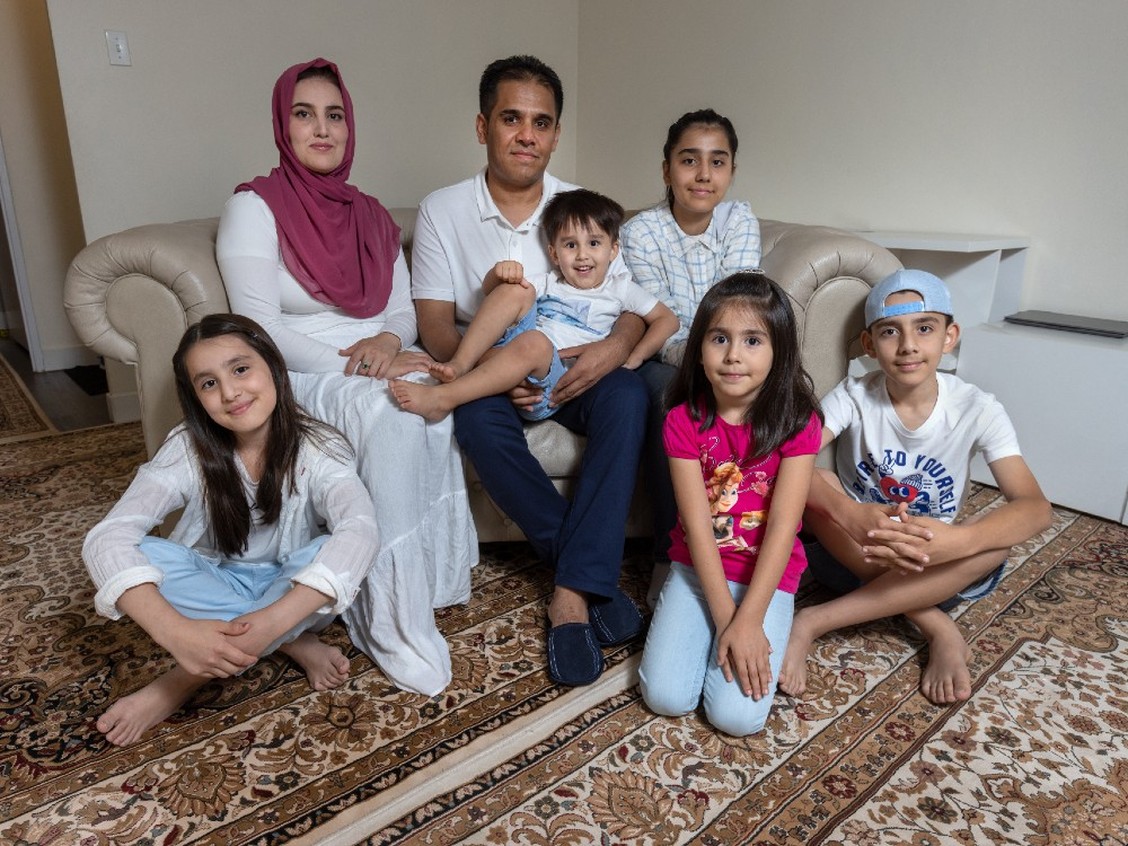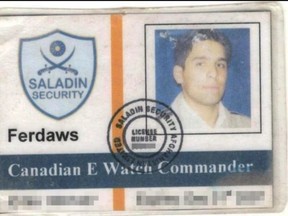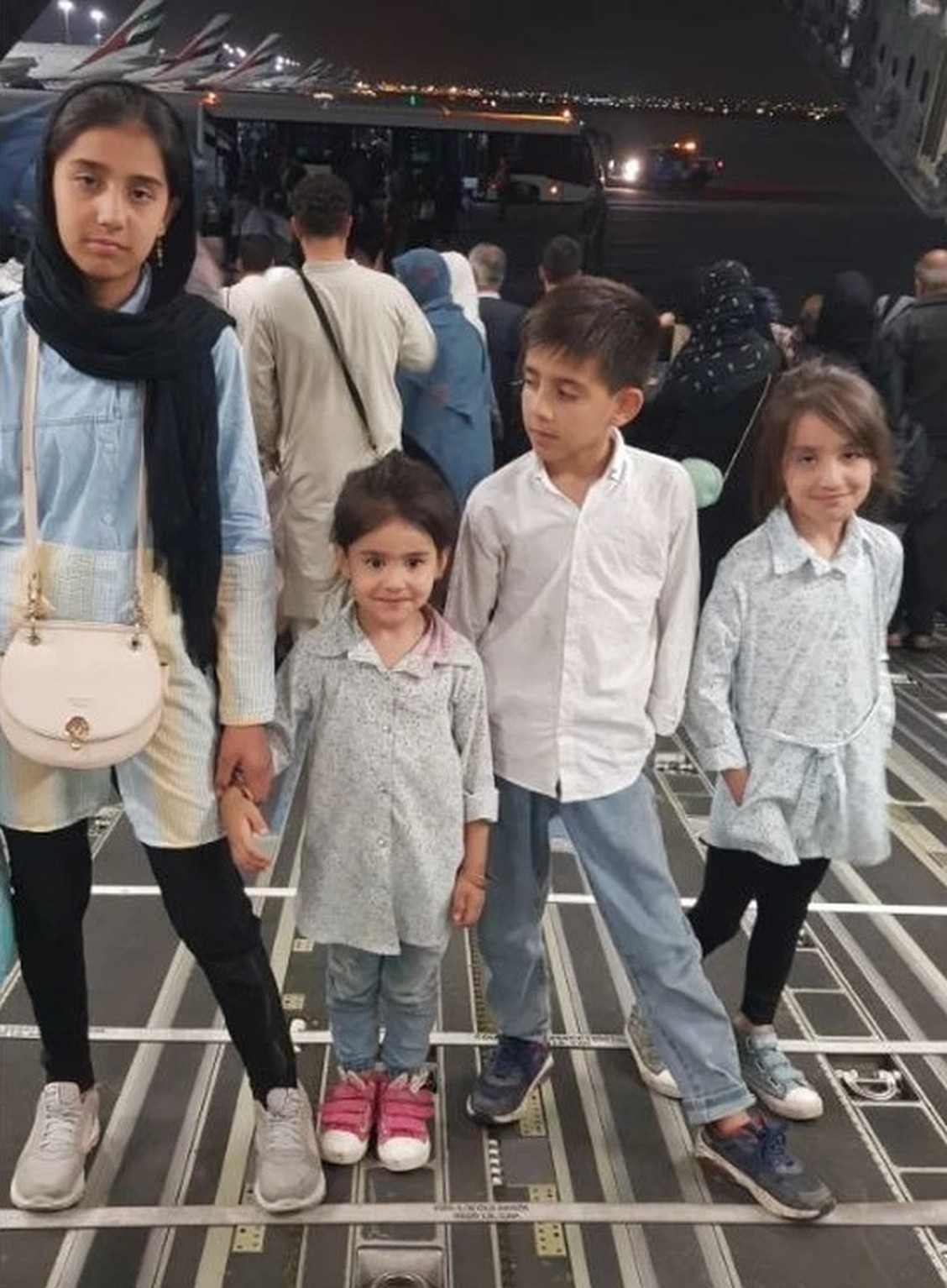Canada's Evacuation of Vulnerable Afghans
"We are so happy because we are here, we are safe. In Afghanistan it was big trouble for us, especially for me, because I was working with foreigners.""If we were stuck in Afghanistan there would be no opportunities for my daughters to go to school.""I'm glad for my children ... because they are living here, they have futures. They will be educated."Ahmad Ferdaws Rahimi, Afghan, former watch commander, contracted security forces, Canadian Kabul diplomatic mission"The people that have come to Canada are burdened with survivor's guilt.""That's the burden that these families are struggling with, and to some degree there's an expectation -- either spoken or unspoken -- that refugees should be grateful for what Canada gives them.""But it's easy to see the way Canada is treating people that worked for us [in Afghanistan] could lead to resentment.""This is the consequence of the government's failed policy."Canadian Air Force veteran Robin Rickards
 |
Canada's 14-year mission in Afghanistan during the UN-approved, NATO-U.S. coalition to free the country from the talons of the Taliban, and to hold al-Qaeda's chief Osama bin Laden -- sheltered by the Taliban hierarchy -- accountable for the horrors of the 9/11 strikes on American soil with the suicide-plane attacks on the World Trade Center, the Pentagon and the downing of another plane heading for Washington in Pennsylvania, was reliant on the voluntary response of ordinary Afghans in aiding their portion of the mission.
Afghans who responded to the foreign missions' requests for locally employed people who worked as interpreters, security personnel and embassy workers among others. And whom the foreign countries that employed them, assured their Afghan assistants that they would extract these workers and their families and bring them to safety should their lives ever be endangered as a result of their commitment both to bringing a semblance of civilized democracy to their country and in aiding the foreign delegations to help accomplish that difficult and inspiring aspiration.
Ahmad Rahimi had worked as a watch commander for contracted security forces at Canada's Kabul diplomatic mission. He was an adviser to the Operation ARGUS team of the Canadian Forces as well as performing security work for the military and diplomatic operations of Germany at their embassy while managing security for Kiam Air, Afghanistan's largest private airline. Employment that marked Rahimi on a hit list of the Taliban. As the resurgent Taliban marched toward Kabul in 2021, their members conducted door-to-door searches for people like Rahimi, who had worked for the allies.
 |
| ID card for Ahmad Rahimi when he was employed at Canada’s embassy in Kabul. Photo by Courtesy Ahmad Rahimi |
An exit plan was an obvious need at this point for the former locally employed Afghans and Rahimi planned to take Canada up on its word. He, his wife Farida and their five children joined the hundreds of people anxious to be evacuated to safety. Canadian Immigration and Refugees and Global Affairs Departments' bureaucracy swung into inept, tardy action, leaving people stranded as they expectantly waited for finalization of their request to secure space on an evacuation flight.
The U.K. and Germany took the necessary steps to bring people to safety, using armed patrols to evacuate their citizens and Afghan workers with the use of helicopters and buses to move people to the Kabul airport. Canada, in its great wisdom informed evacuees they were to "wear red clothing" as identifying material when they presented themselves on the airport's perimeter to Canadian officials stationed at a hotel. The red clothing directive reached the ears of the Taliban and their response was to target those showing up in red clothing.
Any of those desperate to be evacuated to safety out of the clutches of the Taliban who were able to make their way to the assigned area, found themselves turned back by Afghan and by Canadian soldiers, including people with valid documents officially allowing them passage on Canadian flights. A Taliban confronted Rahimi as they waited, and began administering a brutal beating. "I tried to put myself between him and my wife and children. If I had allowed, he would have killed us", the later recounted.
The beating was stopped by a passing Royal Air Force officer who ushered the family through the gate where, thanks to Rahimi's previous work for a U.K. contractor, his family was able to board a British evacuation flight. The Rahimi family lived for some time in London, and were eventually given the required documentation to enable them to emigrate to Canada where Rahimi was given employment with the Ontario government, and the family rents a small three-bedroom apartment.
The children were registered for school, and quickly began picking up English, including the two-year-old child. Once the Afghan refugees arrive in Canada they are given very little government support. Taking up the slack is community support services in the provision of language training. The entire failed effort of the government of Canada to adequately respond to the desperation of Afghans reliant on their former employers to make good on their promise of rescue cued back to the emergency evacuation which fell on the very day Prime Minister Justin Trudeau decided to dissolve parliament prior to a federal election, when a humanitarian emergency fell victim to political expediency.
 |
| Four of Ahmad Rahimi’s five children in the back of an Royal Air Force A-400 cargo plane, just arrived in Dubai from Kabul, on Aug. 21 2021. Photo by Courtesy Ahmad Ferdas Rahimi |
Labels: Afghan Employees, Canada's Afghan Mission, Kabul, Rescue and Evacuation, Taliban

0 Comments:
Post a Comment
<< Home